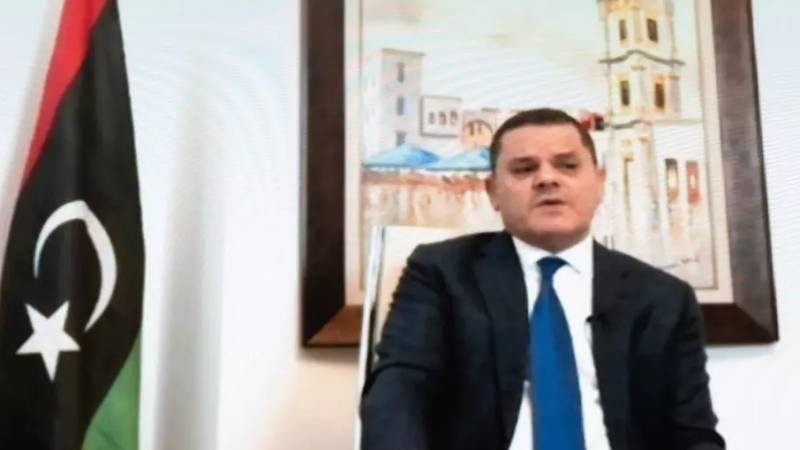Libya embarks on the new transition phase

Stay tuned with 24 News HD Android App

Libya embarked Saturday on a new phase of its post-Kadhafi transition after an interim executive was selected to lead the country until December elections following a decade of chaos.
In a potential turning point accord cautiously welcomed by key powers, four new leaders from Libya's west, east and south now face the task of unifying a nation torn apart by two rival administrations and countless militias.
Abdul Hamid Dbeibah, a 61-year-old engineer, was selected Friday as interim prime minister by 75 Libyan delegates at UN-led talks outside Geneva, the culmination of a dialogue process launched in November.
The new premier on Saturday called for the "reconstruction of the country" and promised to be "ready to listen to and work with all Libyans, whatever their ideology, affiliation or region".
In his first address in the new role, he described the selection process as "democratic and reunifying" after "conflicts and divisions that have affected the Libyan state and its institutions".
"The result... is a consecration of democracy and unity," he ventured in the televised address.
It marked the start of a new chapter for Libya after the failure of a 2015 UN-brokered deal that established a Government of National Accord headed by Fayez al-Sarraj.
Libya has been mired in violent turmoil with divisions between the GNA in Tripoli and a rival administration backed by military strongman Khalifa Haftar in the east.
Acting UN envoy Stephanie Williams, who facilitated the week-long talks in Switzerland, called it a "historic moment".
UN Secretary-General Antonio Guterres said, "I do believe it is a breakthrough". In the centre of the capital Tripoli, citizens guardedly welcomed the news. "At first, Libyans were not optimistic," said 43-year-old Adil al-Kakli.
"But yesterday, the joy was palpable, because we saw these initiatives for the emergence of a state," he added while cautioning that the plan to hold elections in December remained too ambitious.
Fellow citizen Louay Khouzam, 37, said she saw "hope for change", but still believed that polls will not happen before the end of the year.
On social media, many Libyans warned of a likely repeat of several past failed efforts to restore stability and security to their country.
Britain, France, Germany, Italy and the US welcomed the interim government, but cautioned of a "long road ahead" and said it would have to offer Libyans essential public services.
Hailing from the city of Misrata, newly selected premier Dbeibah had led the Libyan Investment and Development Company under dictator Moamer Kadhafi, who was toppled and slain in a 2011 revolution.
The wealthy businessman has 21 days to form a cabinet, then another three weeks to win a vote of confidence in parliament, by March 19 at the latest.
A three-member presidency council has also been chosen to head a unity administration and steer the North African state towards the ballot box on December 24.
The vote is part of a complex UN-led process aiming to build on a fragile ceasefire in force since October that has cleared the way for a resumption of oil exports on which the country is dependent.
Mohammad Younes Menfi from eastern Libya, a former ambassador expelled by Greece in December 2019 in protest at an agreement between Tripoli and Ankara, is to head the presidential council.
Menfi's deputies are Moussa al-Koni, a member of Libya's long-marginalised Touareg minority from the south of the country, and Abdallah Hussein al-Lafi, from the western city of Zuwara.
Haftar's spokesman on Saturday congratulated Dbeibah and Menfi as well as "the Libyan people" on the outcome of the selection process, a day after outgoing premier Sarraj wished the new executive "success in their mission".
